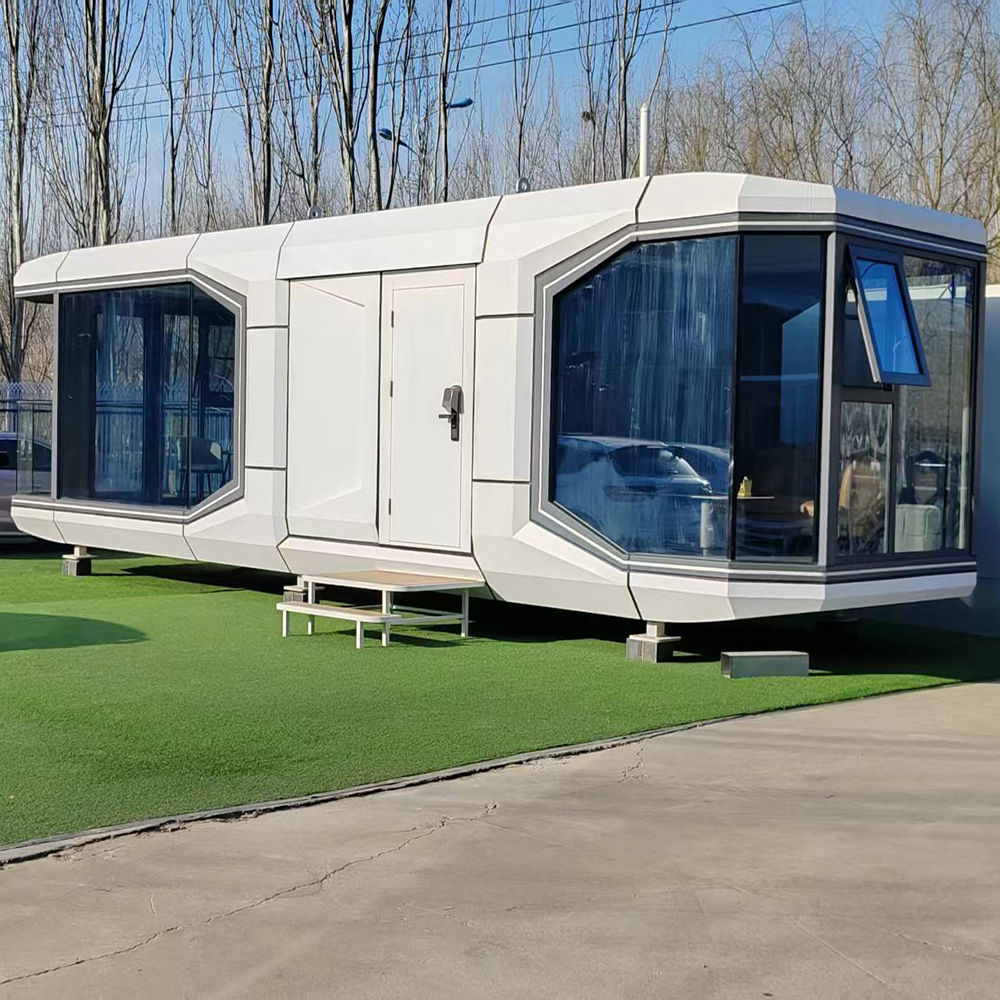-
E-mail
Austin120521@outlook.com -
E-mail
sales@jujiuhouse.com -
Telephone
+86-17864099991 -
Telephone
+86-17854044442
- Chinese
- French
- German
- Portuguese
- Spanish
- Russian
- Japanese
- Korean
- Arabic
- Irish
- Greek
- Turkish
- Italian
- Danish
- Romanian
- Indonesian
- Czech
- Afrikaans
- Swedish
- Polish
- Basque
- Catalan
- Esperanto
- Hindi
- Lao
- Albanian
- Amharic
- Armenian
- Azerbaijani
- Belarusian
- Bengali
- Bosnian
- Bulgarian
- Cebuano
- Chichewa
- Corsican
- Croatian
- Dutch
- Estonian
- Filipino
- Finnish
- Frisian
- Galician
- Georgian
- Gujarati
- Haitian
- Hausa
- Hawaiian
- Hebrew
- Hmong
- Hungarian
- Icelandic
- Igbo
- Javanese
- Kannada
- Kazakh
- Khmer
- Kurdish
- Kyrgyz
- Latin
- Latvian
- Lithuanian
- Luxembou..
- Macedonian
- Malagasy
- Malay
- Malayalam
- Maltese
- Maori
- Marathi
- Mongolian
- Burmese
- Nepali
- Norwegian
- Pashto
- Persian
- Punjabi
- Serbian
- Sesotho
- Sinhala
- Slovak
- Slovenian
- Somali
- Samoan
- Scots Gaelic
- Shona
- Sindhi
- Sundanese
- Swahili
- Tajik
- Tamil
- Telugu
- Thai
- Ukrainian
- Urdu
- Uzbek
- Vietnamese
- Welsh
- Xhosa
- Yiddish
- Yoruba
- Zulu
- Kinyarwanda
- Tatar
- Oriya
- Turkmen
- Uyghur

China prefab folding container house
Exploring the Versatility of China Prefab Folding Container Houses
With the rapid advancement in construction technology, China prefab folding container houses have emerged as a revolutionary solution in the housing industry. These portable, modular structures have garnered significant attention due to their flexibility and economic advantages. Here, we delve into the real-world usage, benefits, and potential drawbacks of these innovative dwellings.
Understanding the Prefab Revolution
Prefab houses in China, especially folding container types, are often misunderstood. Many assume they're only suitable for temporary structures or low-income projects. But this is a simplistic view. Indeed, they offer more — from emergency housing solutions to chic cafes and modern offices. I've worked with clients who expressed initial skepticism, only to realize their potential once they saw them in action.
The real charm lies in customization. Companies like Shandong Jujiu Integrated Housing Co., Ltd., have elevated these structures beyond mere practicality. The aesthetic possibilities are vast; you can create something uniquely yours. Jujiu, for instance, is not just about producing these spaces but re-engineering them into environments people thrive in.
Certain projects I've overseen showed how versatile they can be. One case involved a startup needing an office in a remote area, opting for a two-story container setup. It wasn't just a makeshift solution; it became a vibrant workspace with minimal environmental impact.
Challenges Faced in Implementation
While the benefits are alluring, there are challenges. Transport logistics can be tricky. Imagine a rural site with no direct road access. I've often had to map out intricate delivery pathways, which sometimes involved temporary infrastructure adjustments.
Then there's the aspect of zoning and compliance. Each region may have specific regulations, which can vary dramatically. Shandong Jujiu has made strides here, working closely with local governments to ensure smooth project execution. A strong local partnership is crucial.
Finally, client expectations must be managed. These aren't traditional buildings. Adjustments may be needed in terms of layout plans and utility connections, something new clients often overlook. It’s part of the learning curve but essential for successful integration.
Real-World Applications and Innovations
Beyond mere temporary housing, these container houses are transforming hospitality and retail sectors. Some entrepreneurs are converting them into pop-up shops and mobile eateries. Recently, I collaborated on a project for a beachside café that needed mobility due to seasonal storms. Containers offered the perfect solution — robust and relocatable.
The educational sector is catching on too. Schools in overcrowded regions use them for additional classroom space, catering to growing student populations without massive construction jobs. Jujiu has been instrumental in these educational projects, offering scalable designs that meet specific academic needs.
The environmental angle shouldn't be ignored. These structures support sustainable living by minimizing waste and utilizing recyclable materials. The rhetoric isn't just about being 'green' — it's about smart resource management.
Future Perspectives on Container Housing
Looking ahead, the trajectory seems promising, albeit with certain caveats. We might see more integration with smart home technologies, tailoring these prefab houses not just in form but in function. Imagine automated climate controls or integrated solar roofing — the possibilities are expansive.
Urban planning might soon incorporate these structures as essential components in combating housing shortages. While challenges remain in acceptance and adaptation, the benefits override most reservations. Jujiu is poised to play a critical role with its comprehensive focus on design and innovation.
Finally, one must consider global influences. The export of these technologies could redefine housing solutions in emerging markets. Shandong Jujiu's efforts in research and development are making these solutions accessible and adaptable, anticipating a wider international embrace.
Conclusion: A Practical Revolution
In summary, China prefab folding container houses offer a fascinating blend of affordability, flexibility, and sustainability. The industry, led by pioneers like Shandong Jujiu Integrated Housing Co., Ltd., is on the cusp of broader acceptance and application. While challenges are inherent, the path forward is rich with potential and promise.
As the demand for quick, reliable construction solutions grows, these modular systems might just redefine what we perceive as traditional housing. Whether for personal, commercial, or emergency use, their versatility remains unmatched.
Related products
Related products
Best selling products
Best selling products-
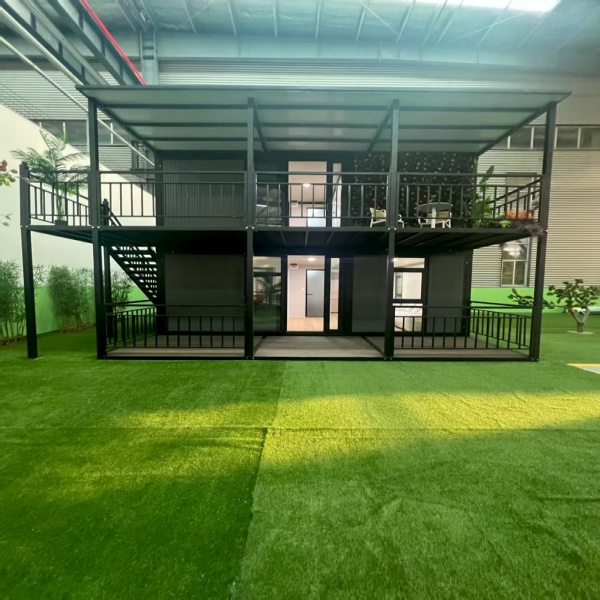 Luxury foldable two-story container houses in luxury resort hotels and villa hotels
Luxury foldable two-story container houses in luxury resort hotels and villa hotels -
 Good Quality Modular Homes Prefabricated House Expandable Container House 20FT Mobile Flat Roof House
Good Quality Modular Homes Prefabricated House Expandable Container House 20FT Mobile Flat Roof House -
 Movable Prefabricated Container House Villas Modular Portable Homes 1 Bedroom Container House Offices Apartments
Movable Prefabricated Container House Villas Modular Portable Homes 1 Bedroom Container House Offices Apartments -
 A container house with a terrace and double-wing folding design, suitable for various purposes such as offices, meeting rooms, living rooms, etc.
A container house with a terrace and double-wing folding design, suitable for various purposes such as offices, meeting rooms, living rooms, etc. -
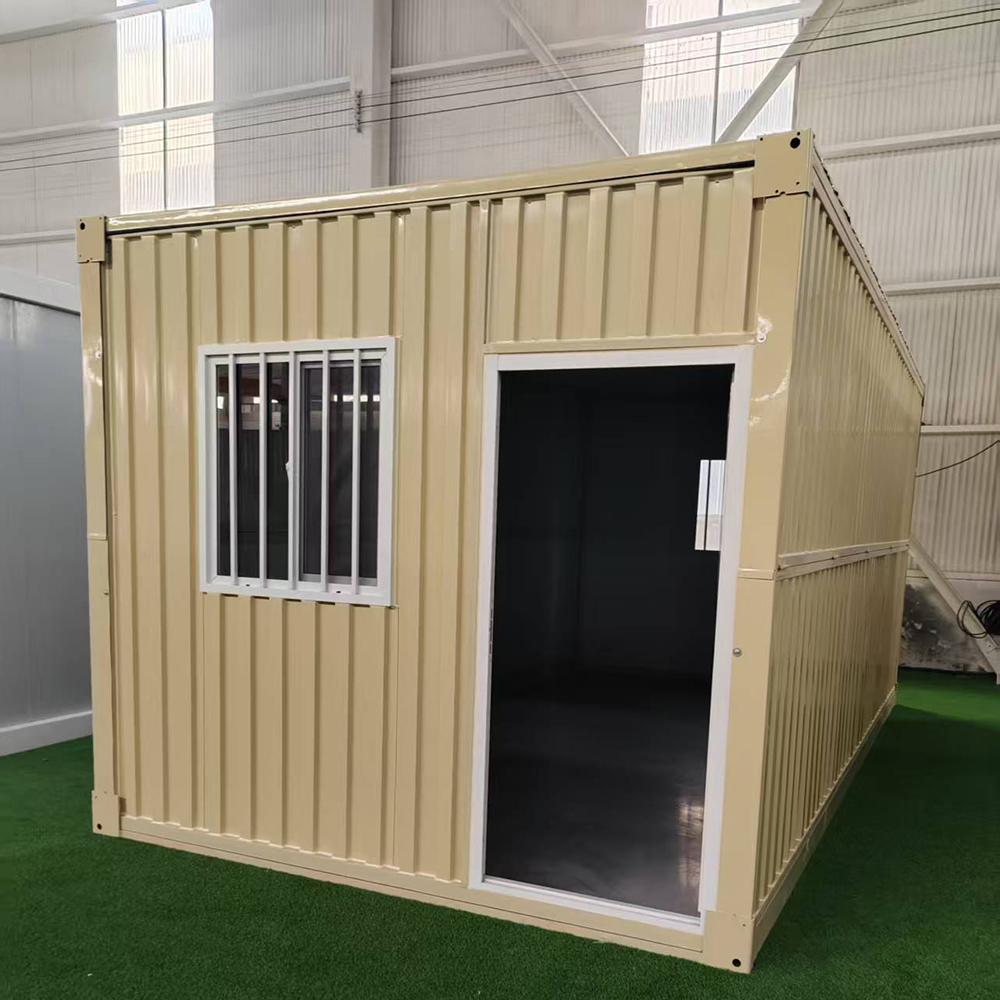 Competitive Price Portable Container House Foldable Container Mobile Living Modular Homes
Competitive Price Portable Container House Foldable Container Mobile Living Modular Homes -
 High-quality Double-wing Folding Container House with Doors and Windows, Insulated Walls, Suitable for Various Scenarios.
High-quality Double-wing Folding Container House with Doors and Windows, Insulated Walls, Suitable for Various Scenarios. -
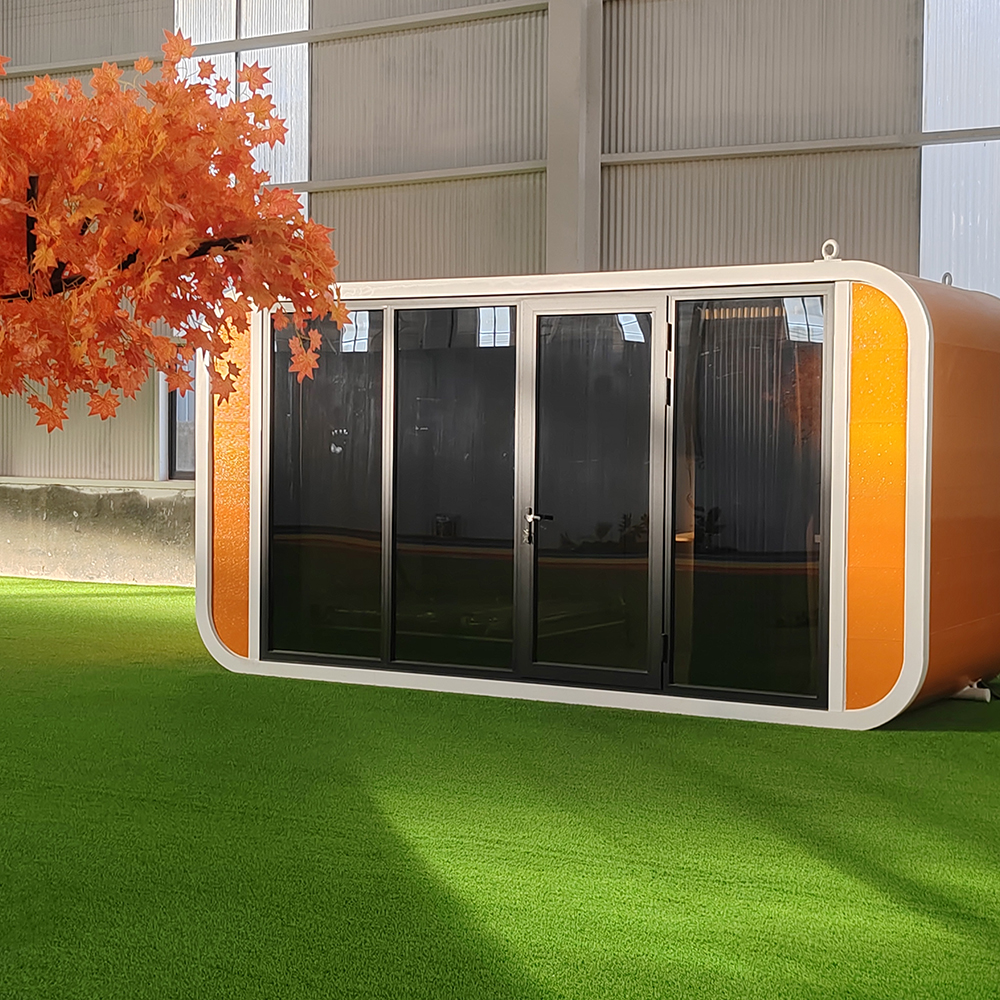 Luxury Prefabricated Living Container House Modular Glass Tiny House Prefab Container Home Apple Cabin
Luxury Prefabricated Living Container House Modular Glass Tiny House Prefab Container Home Apple Cabin -
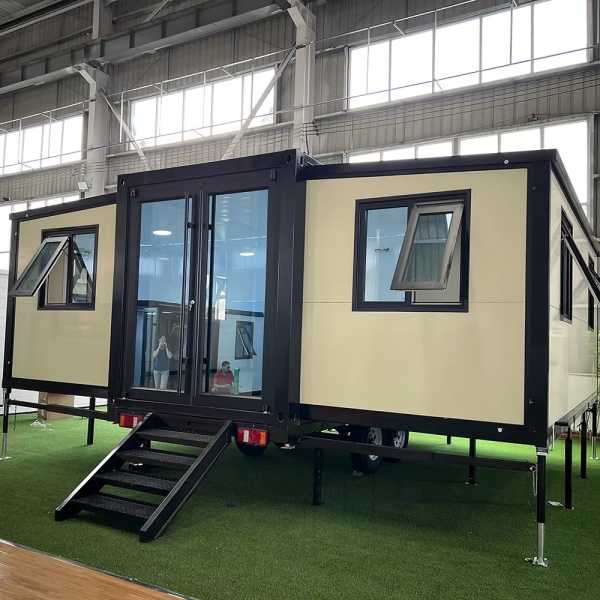 Stair Access Double Wing Expandable Container House | Easy Installation Mobile Office
Stair Access Double Wing Expandable Container House | Easy Installation Mobile Office -
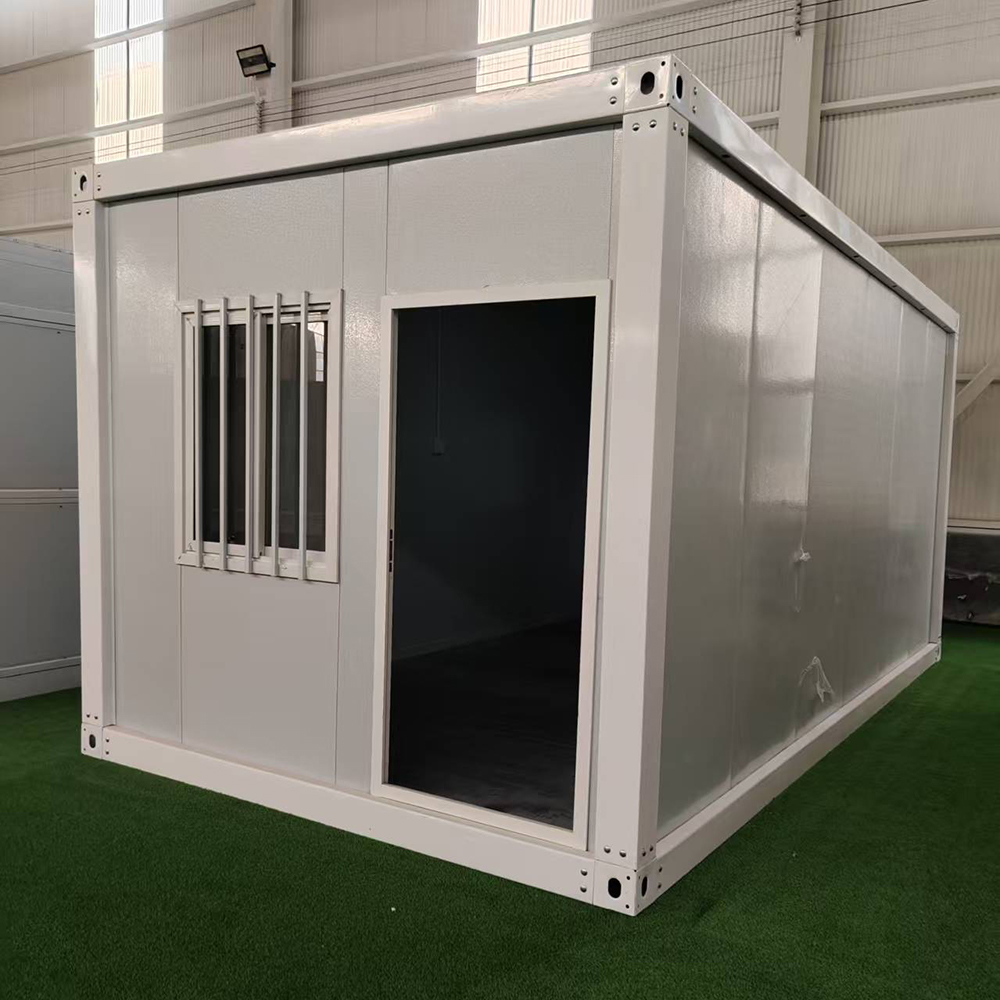 Folding Container Moving House Modular Office Container House Prefab Container for Outdoor Use
Folding Container Moving House Modular Office Container House Prefab Container for Outdoor Use -
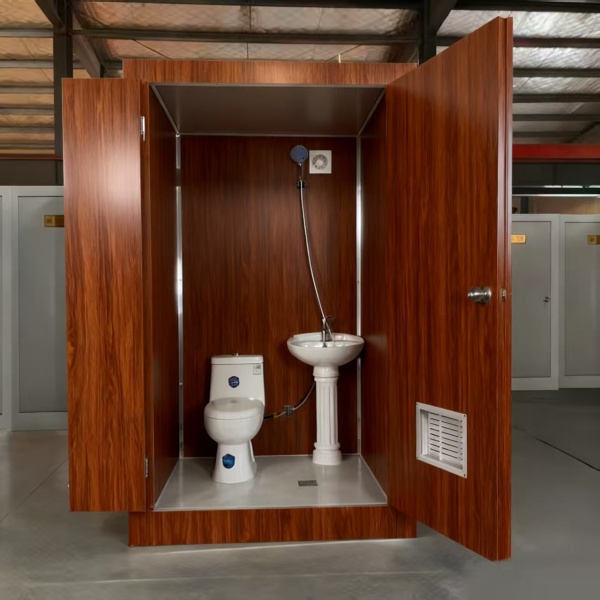 Portable outdoor camping bathroom, mobile toilet, prefabricated modular villa & rental of outdoor and indoor showers
Portable outdoor camping bathroom, mobile toilet, prefabricated modular villa & rental of outdoor and indoor showers -
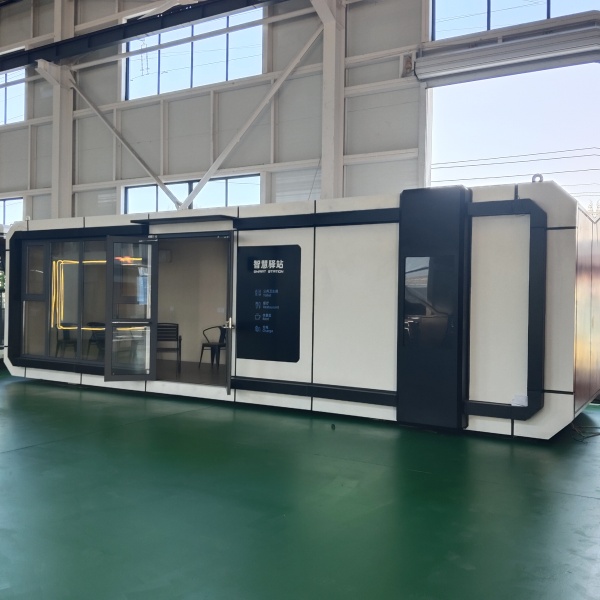 Modular modern movable apple cabins, customized high-end folk houses and portable bedrooms, delivered as a whole
Modular modern movable apple cabins, customized high-end folk houses and portable bedrooms, delivered as a whole -
 A container house with a terrace and double-wing folding design, suitable for various purposes such as offices, meeting rooms, living rooms, etc.
A container house with a terrace and double-wing folding design, suitable for various purposes such as offices, meeting rooms, living rooms, etc.
Related search
Related search- container homes fold out
- apple cabin prefab homes
- China pre built shipping container house
- China 20ft 40ft expandable container house with solar energy
- Buy expandable container house america prefab house
- apple valley cabins
- z folding container house
- folding houses usa
- China apple cabin prefabricated home
- Buy fold out prefab house














